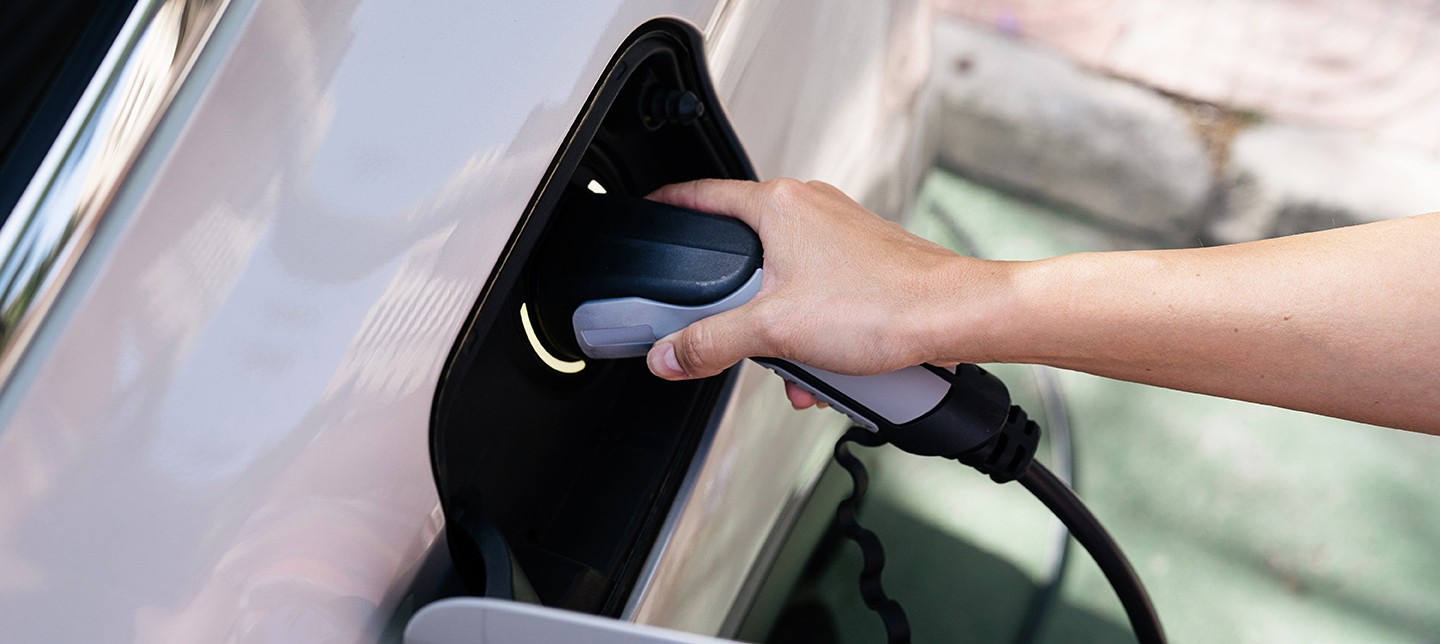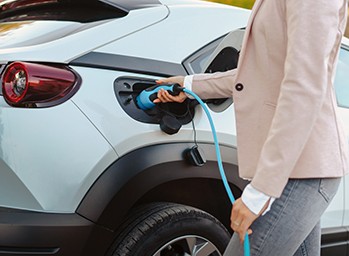
Launching an EV Startup against All Odds
BUSINESS INSIGHT
TRANSPORTATION | 6 MINUTE READ
EV startups must be adaptable and innovative to thrive. While ever-changing obstacles arise, a connected workflow can help companies be more agile, streamline their processes, and react to market conditions out of their control.
AUTHOR: Brenda Vargas, Senior Solutions Marketing Manager, Transportation, NI
The need to get from point A to point B has always existed, and we as humans have found creative approaches to tackle transportation challenges along the way. After the days of horse-drawn carriages were behind us, the introduction of the first vehicle powered by a gas engine helped humans travel long distances faster—albeit with access limited to privileged groups. The evolution of mass production then helped provide access to a broader audience, changing the automotive industry and paving the way for new possibilities in technological advancements beyond the engine system.
Today, we are at an inflection point regarding climate change; many experts point to 1988 as a critical turning point when watershed events placed global warming in the spotlight. Climate change and transportation go hand in hand, and the life-changing technological advances that helped revolutionize the way we move are the same technologies that have contributed to the wide- scale pollution of the planet, creating a responsibility for all of us to do better and adapt to this new era of electrification for the sake of the planet.
In this last decade, several electric vehicle (EV) startups have been established with the common goal to help preserve the planet. Still, the ones that stand out are the ones that have innovated, disrupted, and optimized the problem-solving process. Being able to adapt to ever- changing landscapes has proven crucial to surviving two of the biggest challenges in history simultaneously: a global pandemic and supply chain shortages.
A Connected Engineering Workflow
In 2020, NI had the opportunity to work alongside an EV startup. We witnessed firsthand the importance and impact of having a connected engineering workflow to perform precisely as planned and overcome technology and process challenges to get the startup’s product to market faster with zero defects.
This article explores the main elements that have helped the EV startup company maintain its commitment to its customers and shareholders with the support of its employees, suppliers, and partners amidst ever-changing obstacles.
Accelerating Time to Market
One of the biggest pressures startup companies experience is delivering commitments to the market on time and before their competitors. The EV startup learned that adopting an open, connected workflow is crucial to using test as a differentiator. Moreover, having an open, flexible system built to industry standards allows scalability across suppliers and engineering teams through all stages of product development.
I can bring in elements of any other vendor and tie them into the NI workflow. It’s so open and unified that it makes my job easier.
I can bring in elements of any other vendor and tie them into the NI workflow. It’s so open and unified that it makes my job easier.
Another key factor in accelerating the time to market is shortening test timelines by shifting to the left in the validation phase. Relying on simulation test increases the development pace, expands test coverage, and identifies bugs earlier in the process.
Focusing on ways to close the loop faster with test can significantly impact business. Still, these steps are just the beginning; integrating test across functions by uniting data analytics and test data to optimize processes across the supply chain can help reduce the risk to schedule, which is crucial in the world of EV production.
Reducing Risk to Schedule
When starting our collaboration, the CEO of this EV startup defined the production schedule as his top priority. Understanding the startup’s priorities from the beginning helped us build a plan that has enabled it to keep pace with its timeline:
- Comprehending its deeper needs and the challenges it faced allowed us to create a proposal that included a connected workflow, helping it reduce delivery schedules by 50%.
- Injecting NI engineer talent through our resident engineering program saved 25% of its development time.
- Being an expert connector and facilitating conversations across its teams and sites helped it save development work by leveraging code already created with remote deployment capability into its systems across the globe.
Test is essential, and it’s the last step between cars leaving a factory and consumers driving their newly purchased vehicles. But before the test phases commence, other factors like supply chain issues must be considered and resolved.
Today, we face one of the most significant supply chain shortages in history. These shortages are affecting delivery lead times for components up to one year or more, which is time a startup company does not have.
Since this posed a risk to this EV startup’s schedule, we worked closely with its design teams, who provided insight into features they needed to test. Based on that information and our extensive background working with other OEMs and Tier 1s in the automotive industry, we were able to request parts before they were needed to avoid schedule delays. This process helped them stay on track by providing access to test equipment early to help engineers continue building and testing the vehicle in the face of uncertain global supply chain constraints.
Lastly, we engaged our automotive NI Partner ecosystem and combined its know-how with NI’s automation and measurement experience and open workflow. Our vertical expertise across vehicle domains, along with the EV startup’s software and sciences expertise, helped it build its first vehicle ever in 2021. This first step is just the beginning, as the company continues to improve its manufacturing operations and develop new products and services by focusing on achieving the best possible customer experience and quality.
Improving Product Quality
Creating EVs that perform at the pace the market demands will require companies to transform the way they think and approach test for decades.
Beyond having reliable hardware and software, gaining access to data the startup feels confident it enabled its leaders to make decisions on how they can improve the quality of their next generation of vehicles and understand where they should focus their investments going forward.
The Journey Ahead
NI has transformed test with software by enabling software- connected instrumentation with a modern approach to test data and analytics to unlock the full value of test. By equipping companies with software, hardware, and connected workflows, we enable teams to improve their performance.
Implementing a connected workflow, using an open and flexible system, and positioning data analysis as its key differentiator across its organization positively impacted the way this EV startup interacted across teams and with its stakeholders. With the help of NI, it can now be more agile, define its own workflow in the entire toolchain, and react to the market and technology as it evolves during its journey to help preserve the planet.
An NI Partner is a business entity independent from NI and has no agency or joint-venture relationship and does not form part of any business associations with NI.


